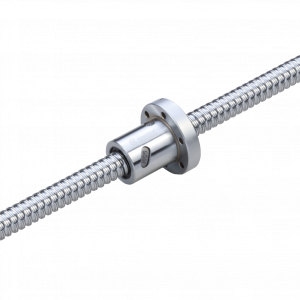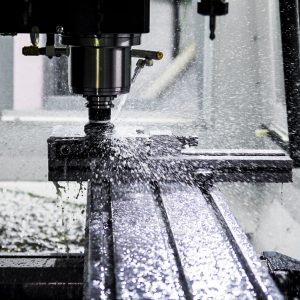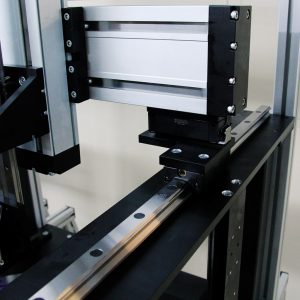What is the difference between extruded and cast aluminium?
When looking for a specific material for your manufacturing process, you may decide on aluminium. Aluminium is an extremely versatile metal and is a brilliant candidate for a wide variety of manufacturing applications and methods. Two of which are casting and extruded aluminium profiles. So, what is the difference between extruded and cast aluminium? Continue reading our guide below to discover everything you need to know.
What is aluminium extrusion?
Aluminium extrusion is the process of using high pressure to force aluminium material through the metal die to create an extruded aluminium profile, or shape. The heated aluminium billet is put into the cylinder, or container, and forced through the container, then through the ram under the pressure of up to 100000 psi.
The die stack at the far end of the container maintains the opening of the die. Once the material is extruded, it is cooled by quenching, stretched to a specific straightness, and is then checked. Finally, the extrusion is aged to the required tempering state, the physical and chemical properties are tested and further, and further manufactured and packaged for shipment, as required.
Aluminium extrusion is an economical production method especially when complex cross-sections are needed. Typical shapes and features can be made by the extrusion process, including hinges, flanges, press and snap, tongue and groove, sliding fits, and more.
Benefits of extruded aluminium profile
- Lightweight and high strength-to-weight ratio
- Conforms to tight tolerances
- Attractive surface finish
- Affordable and cost-effective
- Flexibility of operation
- Simple process and low equipment investment
- Improved structure and mechanical properties
What is aluminium casting?
The casting process involves pouring heated liquid aluminium or aluminium alloy into a mould. This produces aluminium casting parts or casting with limited shape and size. Aluminium casting can produce metal parts with high tolerance, high quality and complex shape.
Common aluminium casting methods include permanent mould casting, investment casting, sand casting, and die casting. A casting mould can be made permanently or steel, or temporarily from a non-metallic material.
Benefits of aluminium casting
- Close tolerance is consistently held
- Can create complex and intricate shapes
- Dimensional accuracy
- Can produce near-net-shape parts
- Can withstand extremely high operating temperatures
What is the difference between extruded and cast aluminium?
Cast aluminium is generally used in lower grade applications and is made with a lot of pot metal, which contains a mixture of different grades of material. Extruded aluminium, on the other hand, is extremely strong and can be used for handling high-load applications. It’s also popular in electronics, telecommunications, automotive products, solar energy, and more.
So, what are the key differences between extruded and cast aluminium?
- Extruded aluminium can only create shapes with a consistent cross-section. Aluminium casting can produce a range of complex parts, and is commonly used to manufacture large products.
- Extruded aluminium profile size is limited by the size of the billet, while castings are available in a wider range of dimensions.
- Aluminium casting may contain defects, but extruded aluminium profiles are stronger.
- Aluminium casting is more expensive than casting aluminium.
- Aluminium casting is more suitable for a long production run, while extrusion is better suited for a short run.
- Extruded aluminium usually has a very smooth surface finish, while cast aluminium often has a rough surface, requiring secondary machining or processing.
Aluminium extrusion at Matara UK
Matara UK are the company with the right profile to meet your demands on aluminium extrusion lengths, aluminium frames and a variety of accessories. Whether you’re looking for one length of aluminium profile or a complete aluminium frame, Matara’s engineers can quickly establish your requirements and supply you with competitively priced, quality products.
With four precision aluminium saws, a fully equipped CNC machine shop and a team of qualified engineers, Matara can provide a single stop solution for pre-cut machined lengths, complete aluminium frames or frameworks with Linear Rails and Actuators mounted.
If you’d like to find out more about what we can offer your application, contact us today on 01684 850000, or email us at sales@matarauk.co.uk.




